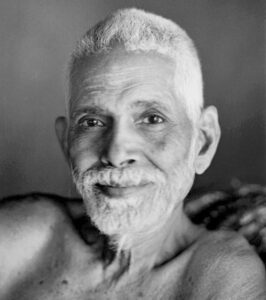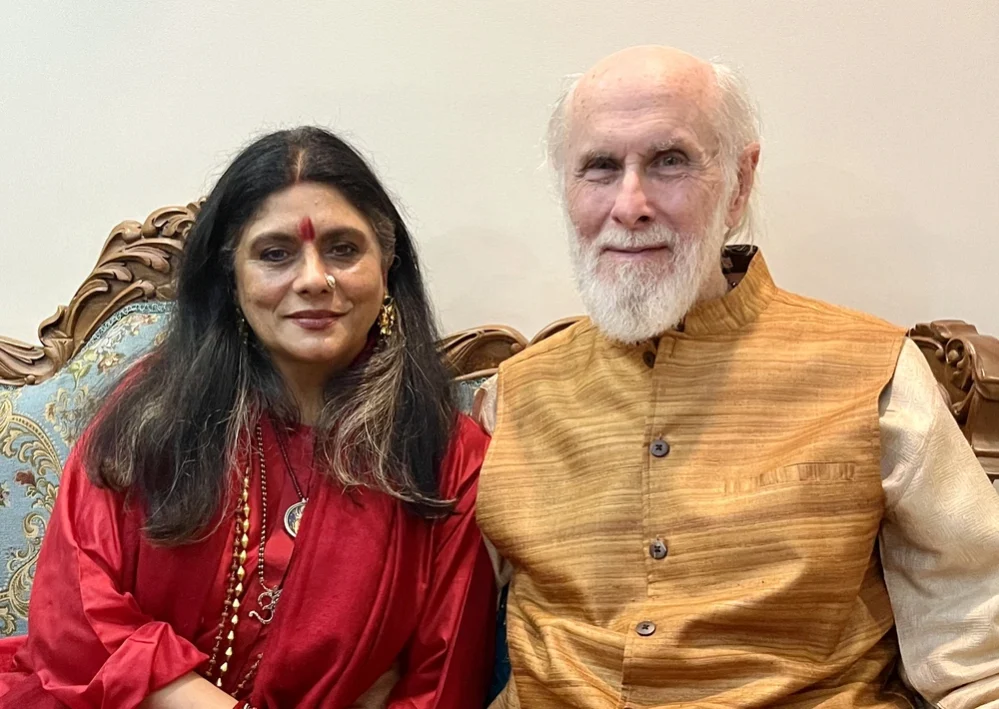Most of us spend several hours on the day on a computer, tablet or smart phone. Though often necessary for our work, it creates tension, depletes the mind and can dull the senses if we don’t know how to compensate for its influence.
On top of this, we may be wired up to music for hours, which we particularly notice among the youth. Most of the day we are being bombarded by electrical impulses, fabricated sounds and media images. These electrical impulses stimulate but also irritate our nervous systems, senses and minds. They prevent us from finding inner calm and peace.
The media is full of advertising, political and cultural statements meant to capture our minds. Most news stories do not consist of objective reporting but of trying to get us to follow a particular point of view uncritically. The amount of electronic information we are taking in has increased exponentially and is bound to grow further in the future. Yet we are no more clear as to who we are and what we are doing in life, either at individual or collective levels.
The crucial question arises as to how the new information technology affects our nervous systems beyond any message it may have. To put it simply this digital stimulation is like a drug, what I would call the “digital drug”. Yet on top of these digital stimulations many of us are also taking recreational or medicinal drugs, as well as our increasingly artificial foods.
Our attention is preoccupied in quickly changing artificial sensory inputs. One could say that there is little in our minds or in our blood streams that is authentically our own. We have little time for being in nature, or to look within and connect with our inner being and the greater universe of consciousness. We may have a Yoga routine, practice meditation or mantra, but this is usually a sidelight to the ongoing flow of our increasingly electronic existence, extending to an virtual self-image that has become more important for us than our actual state of body and mind.
Obviously, the human being was not meant to be wired all the time. It is not part of our evolutionary development in which we emerged from the world of nature. Yet curiously we can easily and adapt to machines, become dependent upon them, or begin to operate like them. The new seeking to develop Artificial Intelligence (AI) is part of this phenomenon. We face a future in which the machine defines our environment, culture, transportation and even identity.
As electronic influences move much faster than our nervous system, we are losing our sensory acuity and capacity for observation and contemplation. Our minds are becoming ungrounded, volatile and reactive. We crave rapid diverse stimulation, which can render us weakened or depressed when these stimuli are withdrawn. We can overstimulate and wear out our nervous systems, leaving us depleted, unable to cope or handle stress.
Psychological, emotional and nervous system problems are increasing, starting with young children. An entire new set of designer drugs has been created to deal with these issues. Yet these drugs may cause more addictions and dependencies. The future of public health, social health and societal psychological well-being seems problematical. We are becoming more unhappy and disturbed on personal and collective levels, and our longevity is starting to decline.
How to Balance our Minds and Nervous Systems
How should we handle this disturbing digital age in which we live and work? Shutting everything off is not an option, though we can reduce or compensate for the time involved. Taking regular time off for our own direct interaction with life and our own inner spiritual practice or sadhana is the key. Without a sadhana to ground us, it is unlikely that we can achieve any real happiness, understanding or higher consciousness, regardless of all the new information and communication. We will remain driven by our equipment and trapped in a world of artificial sensation and information progressively divorced from the organic roots of life and the greater space of the universe.
You should consider how to counter the effects of the electronic world and digital drugs that bombard us and develop a spiritual and healing strategy according to your own wisdom and inspiration
Keys to Coping with a Digital Life
Make sure every day to move your physical body with Yoga asanas, walking or hiking nature or gardens. Swimming is also good. Inverted postures are great to clear the mind, but stillness is the ultimate goal in a sitting pose.
Go out in nature first thing in the morning and last thing in the evening, open up to the sky and letting your mind expand and let go. Contact the cosmic spaces and touch and ground yourself with the Earth, and honor in the cosmic life.
Do daily pranayama preferably morning and evening, notably alternate nostril breathing to balance the hemispheres of the brain. Keep the prana flowing in the left nostril and left side of the body if you are overstimulated, on the right side if you are feeling full or depressed.
Do daily mantra and meditation at least twice a day, including introspection of examining your own thoughts (like the practice of Self-inquiry), as well as periods of silence of mind. The bija mantra AIM aids in concentration, relating to Ma Sarasvati, who grants knowledge and creativity. The mantra SHREEM to Ma Lakshmi, ruling over devotion and happiness, brings positive energy into the mind. Uma’s mantra HREEM opens up the Yoga Shakti.
Take herbal teas to clear the mind like tulsi, brahmi, calamus, tulsi or shankha pushpi instead of the regular tea and coffee. Apply aromatic oils like sandalwood to the forehead, or Ayurvedic oils like Chandanadi or Kshirabala to the head. Brahmi ghee is also great taken in warm milk. Take Ayurvedic foods for the mind and ojas like Chyavan Prash, Brahma Rasayan, Ashwagandha Lehyam or Bilva Prash.
Above all, remember to sustain your cosmic connection and attunement with the eternal and infinite that constitutes your true immortal Self or Atman. Learn to connect to the Cosmic Mind (Mahat Tattva) and its storehouse of higher knowledge in the higher Akasha.
Get adequate sleep and time away from any digital devices. Learn how to turn them off both outwardly and in your mind. Try to return to your inner Self in sleep with the mind put to rest as well. This means sleeping early and waking early if possible.
Of course much more can be done and you may have your own useful prescriptions, but make sure to follow them regularly in a concerted rhythm. The long term effect of excessive electrical stimulation can be insidious and can erode the pranic energy field within and around us. Make sure to bring more of a sattvic or spiritual prana into your life through nature, sadhana and honoring the great gurus and cosmic powers.
Unless we compensate for the ongoing electrical and information bombardment in our lives, it may only disturb us further and disrupt our energy field, even shutting it down at times. Yet if we learn to turn the media on or off as needed, and for subjects of real learning, not just entertainment, it can increase our range of communication, understanding and positive interaction with the world. That is perhaps our main hope at this point in history, but it requires continual conscious effort on our part. It cannot occur while we passively allow someone else to operate our minds and nervous systems.
Never give over your attention to anything that does not uplift you. That is a good rule to follow. Cultivate a higher aspiration, not just better information.
Dr. David Frawley (Vamadeva Shastri)






